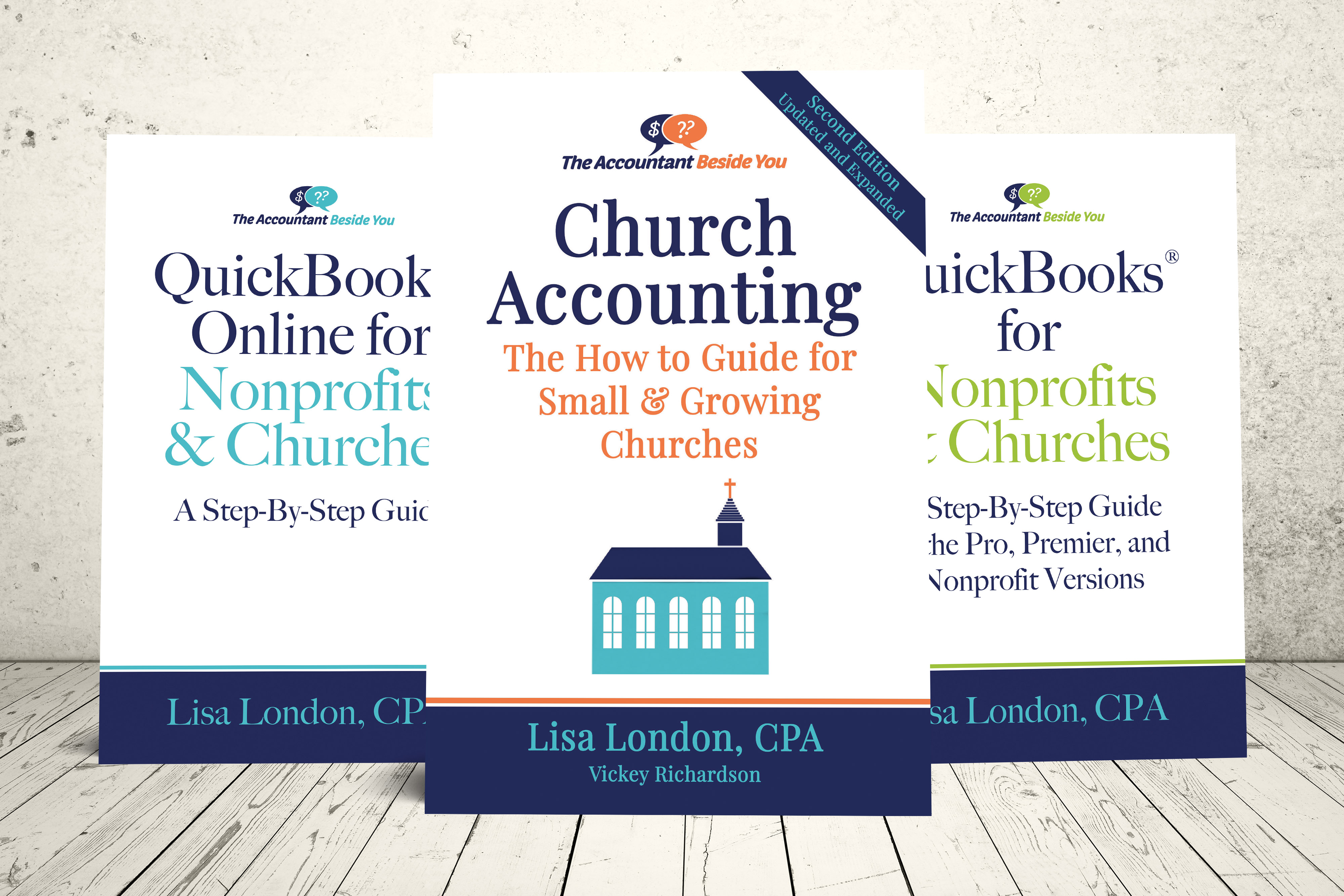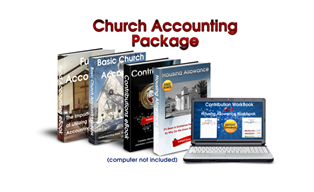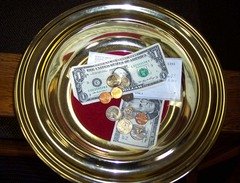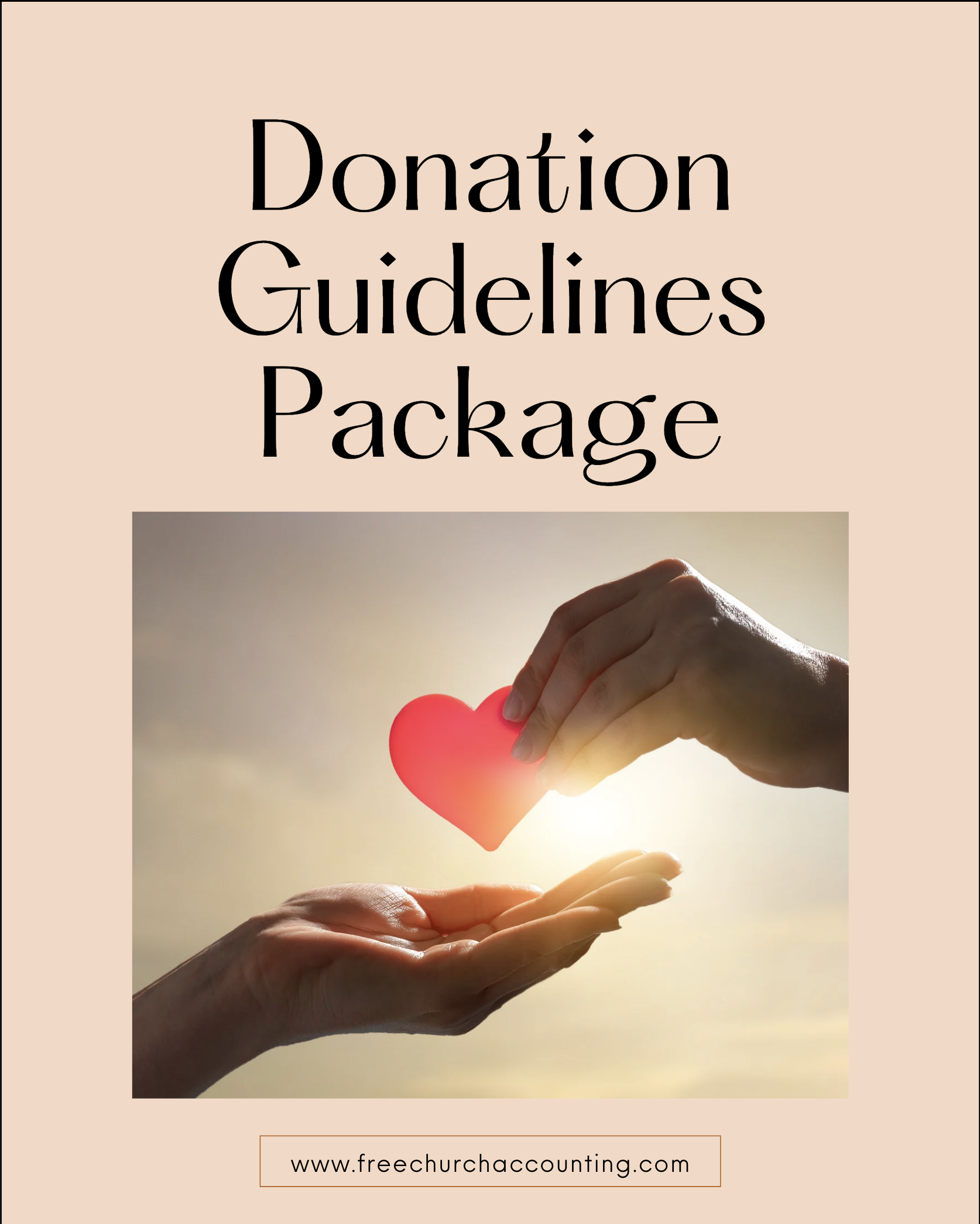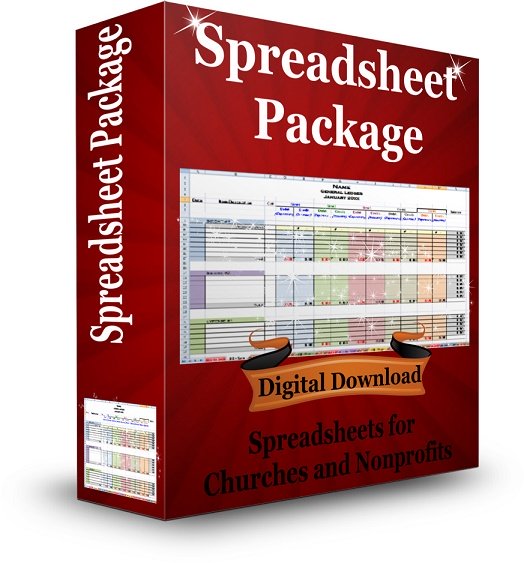Donations
Donations serve as the financial backbone of your organization, and understanding how to properly manage, document, and acknowledge these contributions is crucial.
Here are some essential donations guidelines to follow:
Donations made to individuals are not tax-deductible and should not be included in your annual contribution statements.
By law, you are required to provide contribution receipts. As per IRS Pub 1771, donors must obtain a written acknowledgment from a charity for any single contribution of $250 or more before claiming it on their federal income tax return. Ensure that your acknowledgments contain all necessary details. Visit the contributions receipts page for more information.
Noncash donations are handled differently from cash donations. For all noncash donations, a separate receipt must be issued with the following information:
- Name of the Church or Nonprofit
- Donor's name
- Date(s) of the donation(s)
- Disclaimer about goods or services exchanged for the contribution
- Description of the donated item, including its condition
Most of the time, the receipt will not include a value. Refer to the noncash contribution receipt page for an example.
Note: There are extra documentation required for contributions of qualified vehicles (including automobiles, boats, and airplanes). If you need details on these types of donations, please research the IRS website and purchase my Donation Guidelines Package. It includes 4 ebooks with step-step-instructions on handling these types of contributions and more!

Coupon!
Here is a 10% discount code for all the ebooks, spreadsheets, and packages on this site:
FCA
Note: click on "PACKAGES" in the top navigation bar for a list of all of the ebook and spreadsheet packages on this site!
To effectively manage these donations, consider implementing a robust tracking system that allows you to easily record and retrieve donation details. This system should be secure, ensuring donor privacy and compliance with data protection regulations.
Additionally, transparency and communication play vital roles in maintaining donor trust and engagement. Regularly update your donors on how their contributions are making a difference. Share success stories, progress reports, and financial summaries to highlight the impact of their support.
It's also beneficial to personalize your acknowledgments. A heartfelt thank-you note can go a long way in fostering a positive relationship with your donors. Mention specific projects or initiatives their donations have supported and express genuine gratitude for their generosity.
Training your staff and volunteers on the importance of proper donation handling and documentation is equally essential. Conduct regular workshops or provide resources that cover best practices, legal requirements, and the ethical considerations of fundraising.
Finally, always stay informed about changes in legislation and best practices in nonprofit management. Subscribing to industry newsletters, attending conferences, and participating in relevant webinars can keep you updated and help you continuously improve your donation management processes.
By following these guidelines and maintaining a proactive approach, your organization can ensure the efficient and ethical handling of donations, ultimately supporting your mission and fostering a strong, supportive community.
Learn more ...
Accurately tracking and managing contributions is a must for any nonprofit organization. See when and how you should issue contribution receipts...
See an example of a contribution statement and the five essential elements it should contain...
Donation Guidelines Package
A set of 4 ebook packages that covers many of the following topics...
- How to handle and receipt stock donations
- How to handle free rent and labor donations
- How to handle non-cash contributions
- What to do if you receive a DAF (donor advised fund) contribution or grant
- How to handle Quid Pro Quo donations and other fundraising income such as drawings and raffles
- Donation policies and procedures
- Much more - Click here for details
Gifts in-kind are donations of items, use of property, and professional services. Accounting for those non cash donations can oftentimes be confusing.
See how to acknowledge and account for those donated goods and services...
Knowing WHEN to issue contribution receipts is something every organization that accepts donations should research. Knowing when NOT to issue those charitable contribution receipts may be even more important! …
Most of the time, contributions to an individual do not qualify as charitable contribution, and the IRS does not allow a tax deduction for them...
Donation Scam!

Alert: There is another scam targeting churches and nonprofit organizations!
Someone calls your organization in a panic and states that they accidentally hit an extra zero when processing their online donation and their $200 donation processed for $2,000! You reassure them you will take care of it immediately!
You check your online donations and sure enough their $2,000 donation is sitting in there, so you immediately process a refund for $1,800.
A couple days later you get a notice that the $2,000 donation was rejected due to insufficient funds in their account. You try to call the caller back and find their number has been disconnected.
There are some evil people in this world...but there are also some honest people that make honest mistakes. I had a client that one of their donor's accidentally put one too many zeros in her $50 donation check. My staff caught it as she had written fifty on the written part...which is what the bank is suppose to go by...but the bank processed it for $500 anyway. So the church immediately issued her a $450 refund.
There are steps you can take to ensure you will not become a victim to scams such as this one:
1. Be familiar with donors! In the example above, the scammer was NOT a "regular" donor. That would set off the first alarm bell!
2. Never process a refund until the donation has completely cleared the bank!
3. If possible, have a team or person familiar with current scams handle all refunds or any "requests" that don't feel quite right to you.
Churches, both large and small, are experiencing a growing demand to accept giving electronically. See how to start and set up online giving...
How to Accept Online Giving
Love offerings (gifts) are complex issues for church administrators. See some guidelines in handling love offerings...
The greatest advantage of having a benevolence fund program properly set up is to ensure contributions to that plan will be considered tax-deductible and comply with IRS regulations...
Spreadsheet Package
The Spreadsheet Package includes:
- Contribution Tracking Workbook
- 5 Fund Automatic Accounting Workbook
- Bank Reconciliation Workbook
- Collection Count Sheet
- Mileage Log Workbook
- Much more - Click here for details
PLUS a Word document with 3 examples of contribution statements for cash, non cash, and quid pro quo donations that you can customize for your own use!
